Sơn La is a mountainous, highland province in Northwest Vietnam with a relatively well-developed agricultural sector. Many high-value agricultural products are promoted, along with advanced production processes and techniques, with a focus on high technology applications. This supports a substantial food supply for the province, enhances exports, and contributes to improving local incomes. The province is also actively involved in the transformation of the food system, with efforts underway to develop a provincial plan to implement Decision 300/QD-TTg. These activities are significant in supporting the province in building and implementing the tasks in this plan.
The meeting on November 7, 2024, attracted the participation of over 35 local officials and experts from the Department of Agriculture and Rural Development, the Sơn La Technical Task Force, and representatives of the inter-agency working group, including the Bioversity and CIAT Alliance, the Vietnam Academy of Agricultural Sciences (VAAS), the Institute of Policy and Strategy for Agriculture and Rural Development (IPSARD), the Institute of Agricultural Environment, and the National Institute of Nutrition.


Photo: Ms. Cam Thi Phong - opening speech of the meeting .
At the meeting, Mrs. Cầm Thị Phong, Director of the Department of Agriculture and Rural Development of Sơn La, delivered an opening speech, emphasizing the importance of implementing the transformation plan, in which Sơn La will connect and collaborate with the Ministry of Agriculture and Rural Development and relevant parties to promote a transparent, responsible, and sustainable food system transformation at the provincial level.

(Photo: Assoc. Prof. Dr. Đào Thế Anh introducing the Food System Transformation Plan in Vietnam)
Assoc. Prof. Dr. Đào Thế Anh introduced the background, tasks, and content of the Food System Transformation Plan in Vietnam. This is a multi-sectoral program involving agriculture, health, and nutrition from central to local levels, and with the participation of international organizations. He stressed that for the plan to be successful, it requires active participation and collaboration of all stakeholders in the supply chain, such as producers, businesses, consumers, government agencies, and related associations and organizations. Initial behavioral changes and small shifts will contribute to creating major transformations and driving the transformation process. Additionally, mobilizing both domestic and international resources to carry out tasks related to food system transformation is crucial. Sơn La, along with Đồng Tháp, plays a critical role in leading provincial-level tasks for food system transformation, as both provinces signed an agreement with the national food system transformation partner group on October 18, 2024.
The process of designing, building indicators, and creating a food system profile, as well as identifying provincial priority tasks, is methodical. It will later be documented and replicated in other provinces across the country. The meeting aimed to review criteria/indicators consistent with the content of the Sơn La food system, the role and function of relevant agencies, and identify relevant ongoing projects/programs. This will adjust and streamline data collection at the provincial level to outline the current status of Sơn La's food system and set provincial priority content for implementing the plan in the coming period.
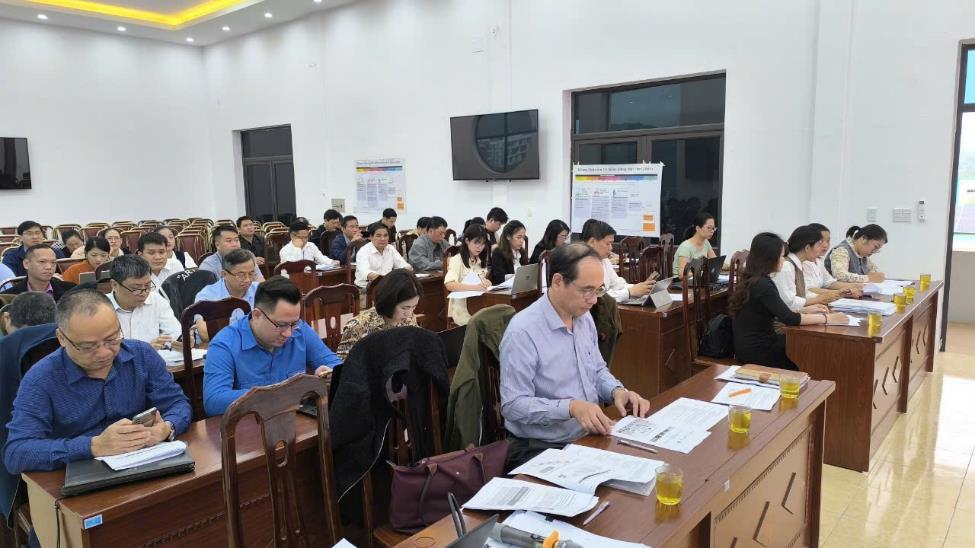
Specifically, during the meeting, representatives of the Bioversity and CIAT Alliance shared a conceptual framework of the food system, steps to develop an indicator set reflecting the current status of Sơn La's food system, and the expected timeline in Sơn La. Specific meeting contents included: i) Provincial consultation on the draft indicator set for each component to describe the current status of Sơn La’s food system, ii) Consultation on the role of relevant organizations, agencies, units at the provincial level or other parties involved in each component of the current food system in Sơn La; and iii) Review of ongoing projects/programs related to the food system transformation process in Sơn La.

To facilitate this, experts, local officials, and representatives from the inter-agency working group were organized into discussion groups by specialty to discuss and share opinions, including: i) Agriculture Group 1; ii) Agriculture Group 2; iii) Socio-Economic and Food Supply Group; iv) Nutrition – Health Group; and v) Natural Resources and Environment Group. Tools applied included: i) A scoring framework for the draft indicator set, ii) Identification of relevant agencies and functions within the food system, and iii) A matrix listing related programs/projects (project name, objectives, expected outcomes, implementation time, location, managing agency, and contact points).
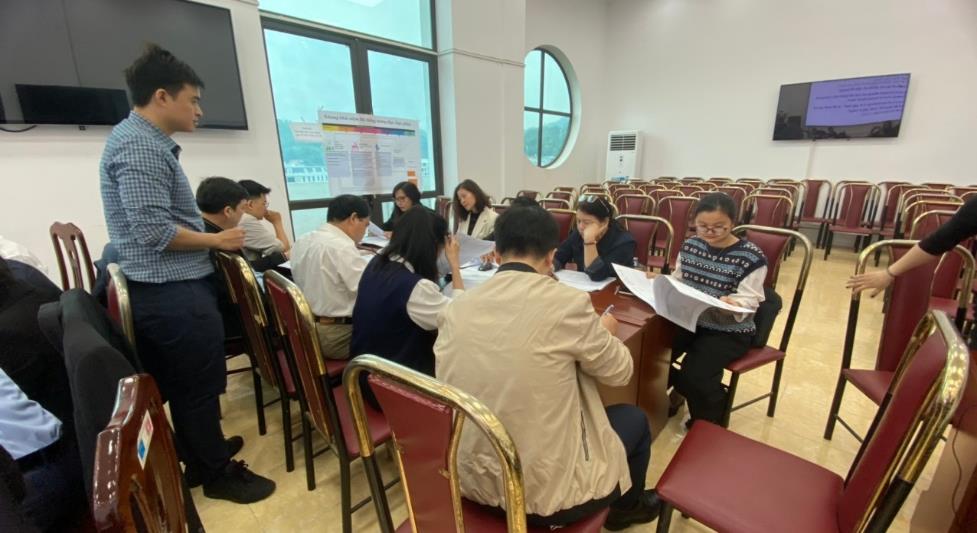
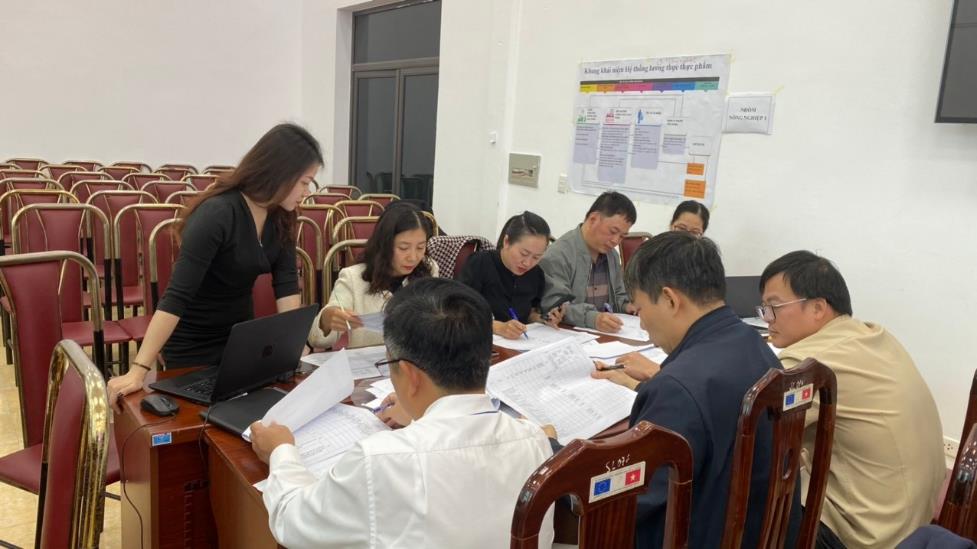
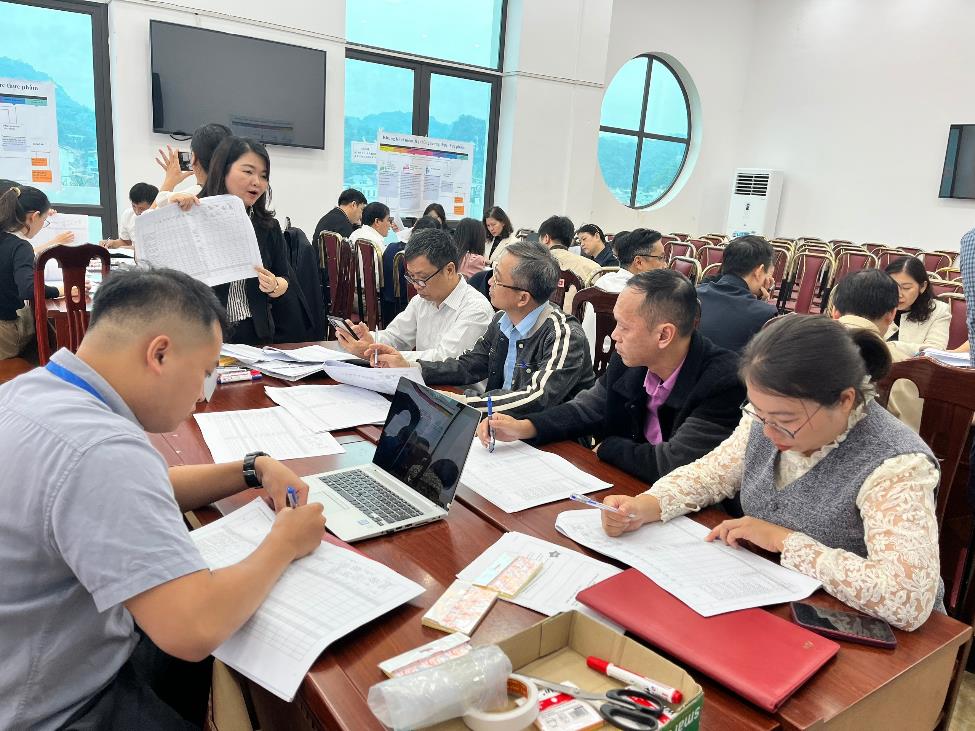
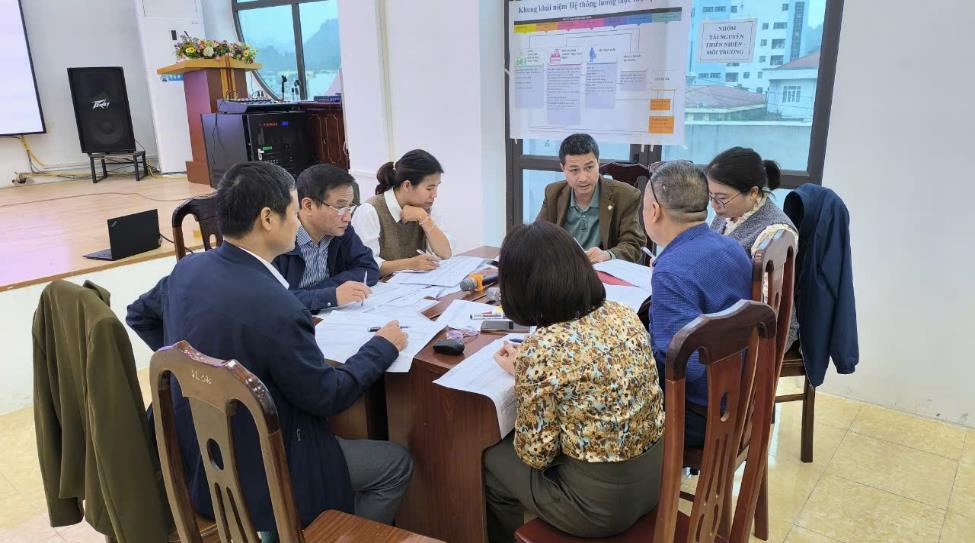
Based on the discussion content and feedback, results were compiled and reviewed by the inter-agency working group and research team in preparation for the next steps in Sơn La.